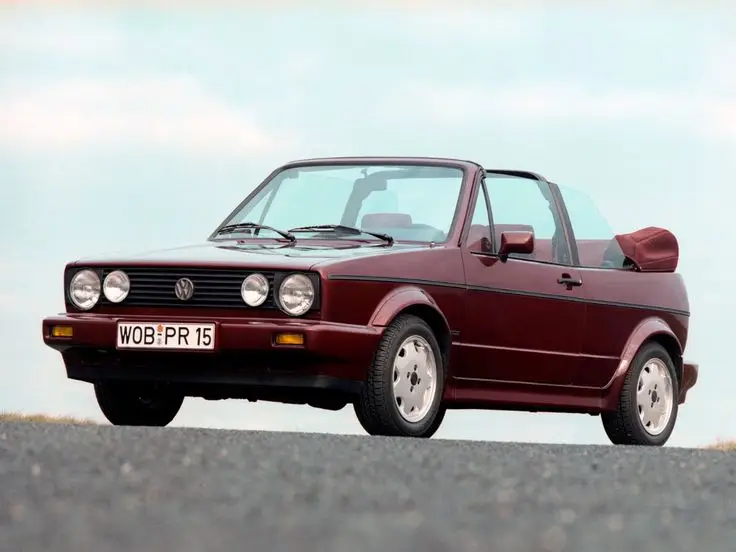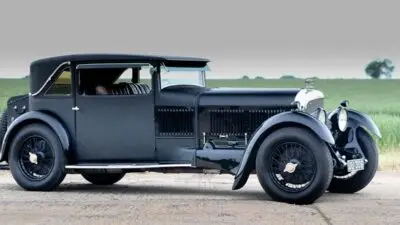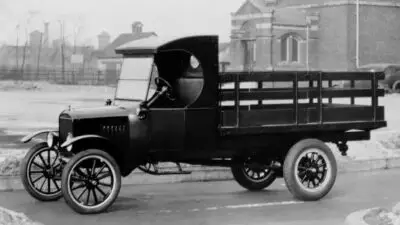Cars have shaped our world in countless ways since their invention. From daily commutes to family road trips, these machines have become essential parts of modern life. Some models have stood the test of time, selling millions of units across decades.

The most successful car models achieved their status through a perfect combination of reliability, affordability, and adaptability to changing consumer needs. These automotive icons didn’t just transport people—they transformed cultures, economies, and personal freedom. Their stories reveal valuable lessons about what makes a product truly timeless in a constantly changing marketplace.
1) Toyota Corolla

The Toyota Corolla stands as the world’s best-selling car of all time, with remarkable sales exceeding 50 million units since its introduction in 1966. This impressive milestone was reached in August 2021, cementing its position in automotive history.
For the past 22 years, the Corolla has consistently maintained its top sales position globally. This consistent performance across multiple decades demonstrates the model’s enduring appeal to consumers worldwide.
The Corolla’s success stems from Toyota’s commitment to reliability, affordability, and practicality. These key attributes have made it a trusted choice for families and individuals seeking dependable transportation.
Since its debut, the Corolla has evolved through 12 generations, each improving upon the last. The seventh generation introduced in the mid-1990s notably featured significant upgrades in size, performance, and safety features.
Toyota has maintained the Corolla’s core values while adapting to changing consumer preferences and technological advancements. This balance between consistency and innovation has helped the model remain relevant throughout its long history.
2) Ford F-Series

The Ford F-Series has earned the title of America’s best-selling truck for 47 consecutive years. This remarkable achievement showcases the vehicle’s enduring appeal and reliability in the competitive automotive market.
In 2023 alone, over 700,000 customers chose to purchase a new Ford F-Series truck. This impressive sales figure reinforces its dominant position in the American automotive landscape.
The F-Series’ success can be attributed to its broad appeal across multiple markets. It serves as both a practical work vehicle and a comfortable family vehicle, meeting diverse consumer needs effectively.
Ford has maintained the truck’s popularity by consistently delivering on performance, innovation, and durability. These key qualities have kept customers returning to the brand for generations.
The F-Series has become deeply embedded in American culture. Its versatility for both heavy-duty workloads and everyday driving has cemented its status as an iconic vehicle that represents reliability and utility.
3) Volkswagen Golf

The Volkswagen Golf stands as one of the most successful vehicles in automotive history. First introduced in 1974, the Golf has sold over 37 million units worldwide, making it the best-selling European car since the invention of the automobile.
The Golf achieved remarkable success quickly, selling over six million units in its first decade of production from 1974 to 1983. This compact car became especially popular after VW introduced the GTI variation just a year into production.
While not as dominant in the United States market, the Golf has maintained its status as Europe’s favorite car. It sold an impressive 205,408 units across Europe in recent years.
The Golf’s enduring appeal stems from several key factors. Buyers appreciate its practical design, reliability, and ample interior space. The vehicle offers a balance of performance and economy that resonates with consumers.
Now celebrating its 50th anniversary in 2024, the Golf continues to evolve with modern technology. Recent models feature innovations like plug-in hybrid drives and AI voice control systems, ensuring its relevance in today’s market.
4) Honda Civic

The Honda Civic has earned its place as one of the best-selling cars of all time. Launched in 1972, this vehicle has sold more than 27 million units worldwide, making it a dominant force in the automotive market.
What makes the Civic special is its remarkable blend of reliability and performance. The car offers agile handling and a sporty feel that competitors struggle to match. Even when compared to other popular models like the Mazda3, the Civic holds its own in driving dynamics.
Fuel efficiency has been another key factor in the Civic’s success. Buyers appreciate its economical operation, especially during periods of high gas prices or economic uncertainty.
The Civic’s durability and enjoyable driving experience have created generations of loyal customers. Many first-time Civic owners become repeat buyers, contributing to the model’s sustained sales success.
Honda’s commitment to evolving the Civic has kept it relevant. The model has transformed from a simple economy car to a revolutionary vehicle that helped establish Honda as a global automotive powerhouse.
5) Volkswagen Beetle

The Volkswagen Beetle stands as one of the most iconic cars ever produced. It earned its place in automotive history by becoming the world’s best-selling single model car for many years.
Originally designed as a “people’s car” in Germany, the Beetle gained global popularity due to its distinctive round shape and practical design. The car was inexpensive, cute, reliable, and fun to drive, making it appealing to a wide range of consumers.
The Beetle’s air-cooled engine proved advantageous in various climates. This feature made it equally suitable for hot summers and cold winters, increasing its versatility worldwide.
By 2018, the Beetle represented just 4% of Volkswagen’s sales, but its historical impact remains significant. The car’s production span crossed multiple decades, cementing its place in automotive history.
The Beetle was truly the first global car in terms of popularity and affordability. Its convertible version also enjoyed remarkable success, remaining the most successful convertible for many years until it was replaced by the first Golf cabriolet in 1979.
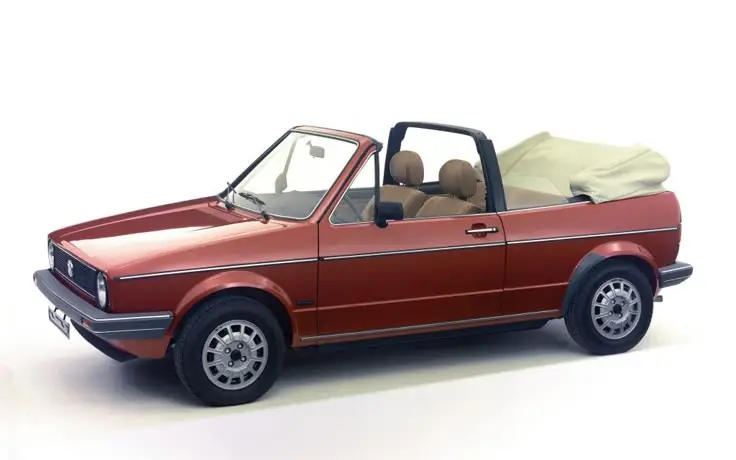
6) Toyota Camry

The Toyota Camry has earned its place as one of the world’s best-selling cars by consistently delivering what customers want. For 19 consecutive years, it has been the best-selling passenger car in the United States.
Americans quickly embraced the Camry for its comfort, reliability, and reasonable price point. The midsize sedan has maintained its popularity even as the automotive landscape has changed dramatically over the decades.
What makes the Camry so successful? It offers an ideal blend of attributes that appeal to a wide range of buyers. The car is known for its comfort, spaciousness, reliability, and good value.
Toyota’s reputation for building vehicles that last has been crucial to the Camry’s success. Many owners report their Camrys running well beyond 200,000 miles with proper maintenance.
The Camry has also evolved with the times, adding modern features and styling while maintaining its core values. This adaptability has helped it remain relevant in the competitive midsize sedan category.
Despite the growing popularity of SUVs, the Camry continues to attract buyers looking for an affordable, stylish sedan with great reliability.
7) Chevrolet Silverado

The Chevrolet Silverado has secured its place among the best-selling vehicles of all time through its reliability and strong market presence. Introduced in 1999, the Silverado has evolved through four generations, becoming one of General Motors’ most successful models.
The Silverado has demonstrated remarkable staying power in the competitive truck market. It holds the distinction of being the best-selling full-size pickup truck among U.S. Hispanic buyers for ten consecutive years, showing its broad appeal across diverse customer bases.
As GMC’s top-selling vehicle, the Silverado continues to be a cornerstone of the company’s financial success. Its popularity stems from its versatile capabilities that satisfy both work and personal use requirements.
The Silverado’s enduring success can be attributed to Chevrolet’s commitment to continuous improvement. Each generation has brought enhancements in performance, fuel efficiency, technology, and comfort features.
Its strong sales figures have earned it recognition as one of the most successful models in Chevrolet’s history. The truck’s blend of durability, capability, and adaptability to changing consumer needs has cemented its legacy in automotive history.
8) Honda Accord

The Honda Accord has earned its place among the world’s best-selling vehicles with over 18 million units sold since its introduction in 1976. This midsize car has maintained impressive sales figures throughout its long production run.
One key to the Accord’s success is its outstanding reliability. The model has built a reputation for lasting hundreds of thousands of miles with proper maintenance, making it a trusted choice for families and individuals alike.
The Accord has shown remarkable versatility throughout its lifetime. While primarily known as a sedan, it has also been offered as a hatchback and other body styles, adapting to changing consumer preferences over the decades.
Honda’s commitment to innovation has kept the Accord relevant. Each generation introduces improved safety features, better fuel economy, and updated technology that appeals to modern drivers.
The Accord has received consistent critical acclaim, appearing on Car and Driver magazine’s “10Best” list a record 30 times. This unprecedented recognition highlights its enduring quality and appeal.
In the United States particularly, the Accord has been one of the best-selling cars over the past 40 years, demonstrating remarkable staying power in a highly competitive market.
9) Ford Model T

The Ford Model T is one of the most influential cars in history. It was introduced in 1908 and remained in production until 1927. Henry Ford designed this vehicle with three key principles in mind: affordability, simplicity, and durability.
What made the Model T revolutionary was its production method. Ford developed assembly line techniques that dramatically reduced manufacturing time. Cars could be produced 8 times faster than competitors, taking just 93 minutes to build by 1914.
This efficiency allowed Ford to continually lower the price of the Model T. The car became the first automobile that average Americans could afford to buy.
The Model T’s sales numbers reflect its massive impact. Over its 19-year production run, Ford sold more than 15 million units. This achievement places it among the top ten best-selling cars of all time.
The Model T was the earliest effort to create a car for the masses. Its success transformed transportation in America and established the automobile as an essential part of everyday life rather than a luxury for the wealthy.
10) Lada ‘Classic’

The Lada ‘Classic’, also known as the Lada Riva or Lada Nova in some markets, stands as one of the best-selling vehicles in automotive history. This Soviet-built car has sold an impressive 17.75 million units since its introduction in 1970.
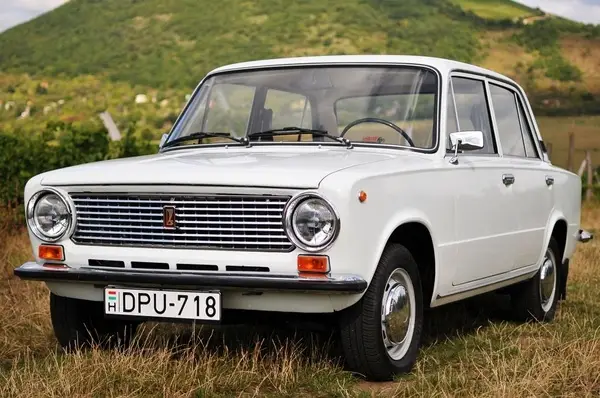
Originally based on a Fiat design, the Lada Classic became a staple in Eastern Europe and Russia. The car gained popularity due to its simple design, mechanical reliability, and ease of repair.
The Lada Riva, as it’s often called, was first launched in 1980 as a continuation of the original Lada lineup. It was based on an old Lada 1500, showing how the manufacturer extended the life of its successful design.
What made the Lada successful was its practicality and affordability. The vehicle featured a modest 1.2-liter engine nicknamed “Zhiguli” that was known for durability rather than performance.
Despite lacking modern amenities, the Lada Classic’s success came from its function-over-form approach. It provided reliable transportation in harsh conditions and remained in production for decades with minimal changes.
Key Factors Behind The Success of Best-Selling Cars

The most successful cars in automotive history share several critical elements that consistently attract buyers over decades. These vehicles typically combine engineering excellence, strong brand reputation, and the ability to adapt to changing markets.
Engineering Excellence
The best-selling cars of all time prioritize reliability and durability as fundamental engineering principles. Toyota Corolla and Volkswagen Beetle earned their legendary status through engines that consistently perform for hundreds of thousands of miles with minimal maintenance.
Cost-effective manufacturing also plays a crucial role. Ford’s Model T revolutionized production with assembly line techniques that dramatically reduced costs while maintaining quality standards.
Fuel efficiency has become increasingly important in recent decades. Honda Civic and Toyota Camry consistently deliver excellent mileage without sacrificing performance, making them practical choices for daily drivers.
Safety innovations also contribute significantly to long-term success. Volvo’s reputation was built on pioneering safety features, while modern bestsellers typically earn top crash test ratings.
Brand Reputation
Strong customer loyalty forms the backbone of automotive success stories. Toyota and Honda enjoy exceptional repeat purchase rates because owners trust their vehicles will deliver consistent quality.
Perceived value matters tremendously. Subaru built its reputation on all-wheel-drive reliability in challenging conditions, creating a passionate owner base willing to pay premium prices.
Marketing consistency helps establish lasting impressions. Ford F-Series trucks have maintained a “Built Tough” message for decades, reinforcing their position as dependable workhorses.
Warranty coverage and dealer service experiences significantly impact brand perception. Hyundai transformed its image by offering industry-leading 10-year powertrain warranties, signaling confidence in their engineering.
Market Adaptability
Successful automakers demonstrate remarkable ability to evolve with changing consumer preferences. The Honda CR-V shifted from a basic utility vehicle to a refined family crossover as market demands changed.
Price point flexibility allows manufacturers to reach broader audiences. Toyota offers multiple trim levels and powertrains for the Camry, making it accessible to budget-conscious buyers and luxury seekers alike.
Global market adaptability is increasingly critical. Ford Focus and Volkswagen Golf succeed by offering region-specific features while maintaining core engineering principles across markets.
American brands that failed to adapt quickly to competition from more reliable Japanese manufacturers lost significant market share in the 1980s and 1990s, demonstrating the importance of continuous improvement.
Cultural Impact of Iconic Cars

Iconic cars have shaped not only transportation but also our culture, leaving lasting impressions on everything from movies to design trends. These vehicles transcend their mechanical purpose to become symbols of eras and movements.
Influence on Pop Culture
Certain cars have become stars in their own right through film and television. The DeLorean DMC-12 from “Back to the Future” transformed a commercial failure into a cultural icon that represents time travel and 1980s futurism. Similarly, the 1968 Ford Mustang GT featured in “Bullitt” cemented the Mustang’s reputation as the quintessential American muscle car.
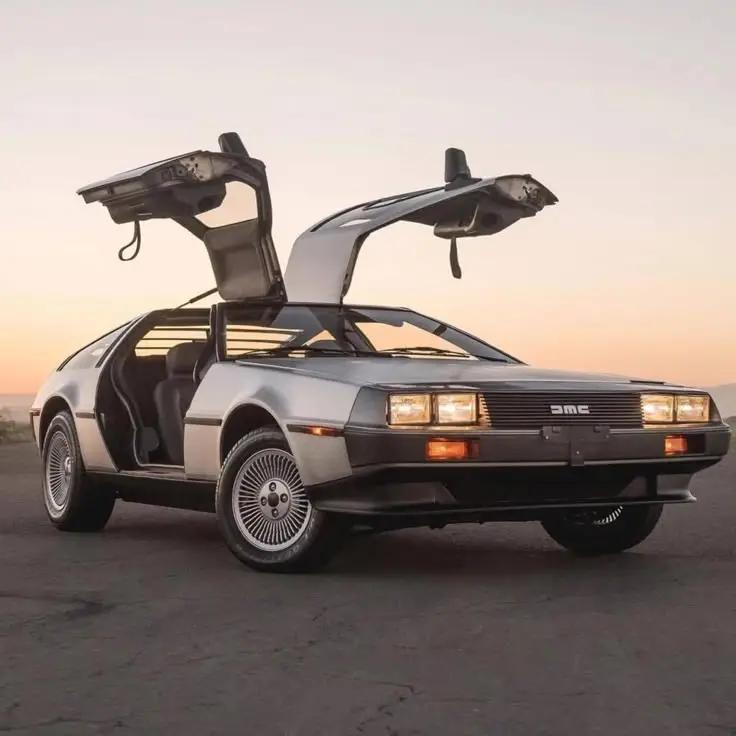
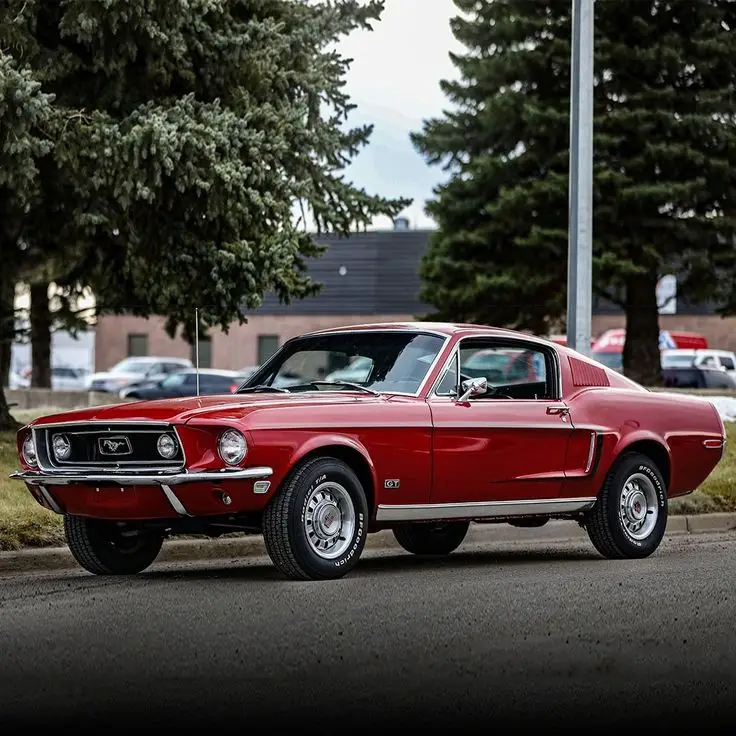
Music has also embraced automotive culture, with countless songs celebrating specific models. Bruce Springsteen’s references to Cadillacs and The Beach Boys’ “Little Deuce Coupe” connected cars to American identity and freedom.
Cars have even influenced fashion and design trends. The sleek lines of iconic cars have inspired everything from clothing to architecture, showing how automotive aesthetics extend beyond the road.
Role in Automotive History
The Volkswagen Beetle revolutionized the concept of the “people’s car,” making automobile ownership accessible to millions. Its distinctive shape and affordable price created a new market segment that influenced manufacturers worldwide.
The 1908 Ford Model T changed history by introducing assembly line production. This innovation didn’t just create a popular car—it transformed manufacturing processes across industries and made cars part of everyday life for average Americans.
Japanese models like the Toyota Corolla proved that reliability and efficiency could win over consumers, challenging American automotive dominance in the 1970s and reshaping industry standards.
The rise of teenage car culture in the 1950s and 60s created new social patterns. Cars became symbols of independence for young people, leading to drive-in theaters, car customization trends, and new dating rituals centered around automobiles.
Frequently Asked Questions

The automotive industry has seen several standout models that have achieved remarkable sales figures over decades. These vehicles have succeeded due to specific qualities and market strategies that keep customers returning generation after generation.
What factors contribute to a car becoming a top-seller in the global market?
Reliability stands as the most crucial factor for global bestsellers. Cars like the Toyota Corolla have built reputations for lasting hundreds of thousands of miles with minimal issues.
Affordability also plays a key role, as vehicles with reasonable purchase prices and low maintenance costs appeal to a broader audience.
Adaptability to different markets helps manufacturers reach more customers. The most successful models offer variations that meet regional preferences while maintaining their core identity.
Fuel efficiency has increasingly become important, especially during periods of high gas prices. Models that deliver good mileage typically maintain stronger sales during economic downturns.
Which car holds the record for the highest number of units sold worldwide?
The Toyota Corolla holds the title as the best-selling car model of all time with over 50 million units sold since its introduction in 1966. This impressive achievement spans 12 generations of the model.
The Corolla became the world’s best-selling car by 1974, just eight years after its debut. Its consistent focus on reliability, affordability, and practicality has helped maintain its sales leadership.
The Volkswagen Beetle ranks as one of the all-time best-sellers and holds the distinction of being the best-selling car with only a single body style throughout most of its production.
How do market trends affect the sales of historically best-selling vehicles?
Economic conditions directly impact vehicle preferences, with fuel-efficient models like the Honda Civic seeing sales surges during gas crises. When fuel prices drop, larger vehicles often regain popularity.
Environmental concerns have pushed manufacturers to develop hybrid and electric versions of popular models. The Toyota Corolla and Honda Civic now offer hybrid variants to maintain relevance.
Urbanization has increased demand for compact vehicles in densely populated areas, benefiting smaller models like the Volkswagen Golf. These cars offer easier parking and maneuverability in city environments.
Regional preferences create different sales patterns across markets. While the Ford F-Series dominates North American sales, it has less presence in markets where compact cars are preferred.
What is the best-selling car model in the United States, and what has contributed to its success?
The Ford F-Series pickup trucks hold the title of best-selling vehicle in the United States for over four decades. Their success stems from their versatility and ability to serve both work and personal needs.
Ford’s continuous innovation has kept the F-Series relevant, including the introduction of aluminum bodies to reduce weight and increase fuel efficiency. Their early adoption of turbocharged engines also helped maintain popularity during fuel price increases.
The strong brand loyalty among F-Series owners contributes significantly to its ongoing success. Many buyers purchase multiple F-Series trucks throughout their lifetime based on positive experiences.
Which car manufacturer has consistently ranked high in global sales, and what are their strategies?
Toyota consistently ranks among the top global manufacturers, with its success built on a foundation of reliability and quality control. Their production system minimizes defects while maximizing efficiency.
The company’s global approach includes tailoring vehicles to regional preferences while maintaining core engineering principles. This balance helps them succeed across diverse markets worldwide.
Toyota’s conservative design philosophy emphasizes evolutionary rather than revolutionary changes. This approach helps retain existing customers while gradually attracting new ones through incremental improvements.
In what ways has technology influenced the sales of the most popular car models across the globe?
Safety technology has become a major selling point for top models like the Honda Civic and Toyota Corolla. Advanced driver assistance systems have helped these vehicles maintain appeal among safety-conscious buyers.
Connectivity features have transformed consumer expectations, with integrated smartphone interfaces becoming standard in bestselling models. These technologies keep older model lines feeling current and relevant.
Fuel-saving technologies including hybrid systems have helped traditional bestsellers adapt to changing environmental concerns. The Toyota Corolla, for instance, now offers hybrid powertrains across global markets.
Manufacturing technology advancements have allowed companies to produce vehicles more efficiently and with greater consistency. This helps maintain quality while keeping prices accessible for mass-market bestsellers.
